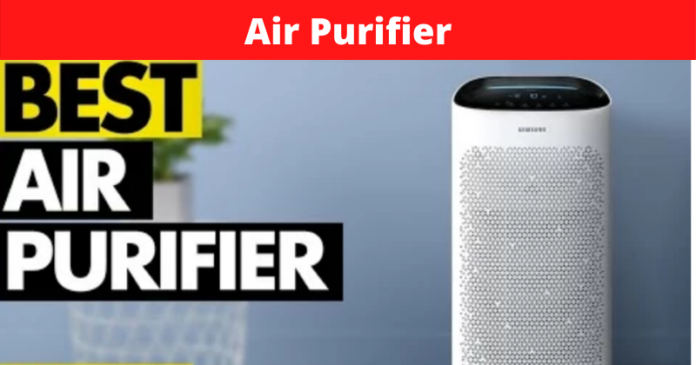Air Purifier
Though with the advancement in technologies, there is no big improvement for air quality. In fact, the air quality keeps on deteriorating every day. Pollutants, particles, allergens, smokes, etc are filling up the sky and our fresh air.
Air purifiers can help remove the pollutants in the air, therefore are especially beneficial to those who are suffering from asthma or respiratory allergies.
Particles removal method
To choose the best air purifier, the method that the machine used for removing particles is essential. For example we can have HEPA air purifiers or ionic air purifier.
Mechanical filters are used to physically trap the small particles. One of the Common types of such filters is HEPA (high efficiency particulate absorbing) air purifiers are filter-based air purifiers which can remove up to 99.97% of 0.3 – 0.01 micrometers particles (known as the large particles), but are less effective to capture the smaller particles.
HVAC (Heating, Ventilating, and Air Conditioning) and MERV (Minimum Efficiency Reporting Value) filters are designated to capture large particles also, but they are even less effective than the HEPA, at around only 75% capture rate.
ULPA (Ultra Low Penetration Air can remove also 99.97% of dust, pollen and other airborne particles, and is the best for removing smaller particles.
Activated carbon filters are best for volatile chemicals. It effects by transforming the from gaseous stage to the solid stage. It is often used together with the HEPA.
Electrostatic is also sort of filter-based, but the filter is actually a statically charged collection plate to capture the particles instead of just physically.
Ironic ones are using a negatively charged collector (generated by magnets) to attract the positively charged particles and pollutants.
Air Purifier Reviews
IQAir
IQAir is a Swiss brand with over 40 years for air purifying products. Most of its models are achieving over 99% of removal of 0.3 micrometer particles. IQAir HealthPro offers the basic IQAir HealthPro 150 and the advanced IQAir HealthPro 250. Basically, there is no big difference between IQAir Pro 150 and 250, except Pro 250 has 2.5 times higher capability to remove gaseous pollutants than Pro 150. The two models can clean around 900-1,000 square feet areas. Main features include mold spore control, pet dander control, pollen control, indoor air pollutant control and house dust mite allergen control.
Read this also : Integrated Dishwasher
IQAir purifiers are with many positive feedbacks from users. Many of the users are having severe allergies or asthma and they bought IQAir as their final try. Many of them are saying that IQAir really works and they are worth to buy. The brand was chosen to be the only brand that was powerful enough to be used during the SARS outbreak by the Hong Kong Hospital Authority.
The two models cost around $799-$899. Some users think though the IQAir is with good quality, but they are expensive especially when you have to replace the pre-filters 4 times a year ($50/filter).
Honeywell
It offers around 10 models of purifiers. It has three different product lines including Enviracaire Purifiers, Quietcare Purifiers and SilentComfort Purifier. Unlike the rectangular shapf that IQAir has, Honeywell models are with more round and modern shape.
Honeywell purifiers are designed to clean smaller around 225 – 400 square feet. Most of the models are using HEPA filters with certain models in conjunction with the activated carbon pre-filter. Around 99% – 99.7% of airborne can be captured.
Users are rating Honeywell purifiers high. Users comments Honeywell that it cleans the air effectively and helps alleviate their allergies. They are very satisfied for the quietness when the purifier is operating. Users think the price for Honeywell is also low. But many of the users are saying the sizes of the purifiers are big and wide.
For a Honeywell model, it costs you from $70 to $200 depends on your choice of model.
Source : Air Purifiers

